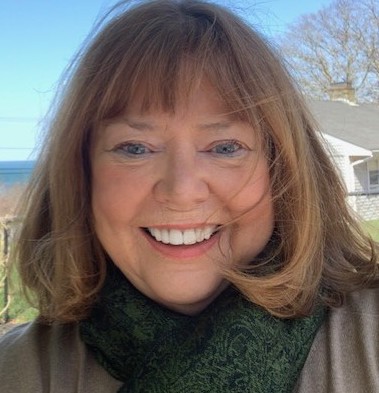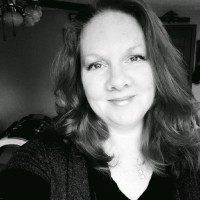How did you become a naturalist?
My happy career started with auditing a Marine Biology, Cetacean Research class at Bridgewater State. The lab involved collecting data on the humpback whale population found in the Gulf of Maine, during whale watches. It was a match made in heaven for me. I fell in love with the whales and the passengers on board. I’ve been working for Capt. John Boats for many years now and it never gets old. People come from all over the world to see whales and, for many of them, it becomes a spiritual experience observing such an enormous and sentient creature. Fresh air, mostly sunny skies, and lots of whales … I really do have the best job!

What does your job entail?
My job begins with helping to load passengers onto the boat and then going over the safety regulations. I then give a harbor tour and explain where we are headed, usually to the Gerry E Studds/Stellwagen Bank National Marine Sanctuary, where the upwelling currents bring food for a variety of creatures including minke, fin, sei, right and humpback whales, as well as porpoise, dolphins, turtles, seals and a huge variety of fish, including sharks.
Different species have different shaped blows. It’s my job to help spot the whales’ blows (exhalations) and identify what species they are and to teach the passengers as much as I know about them and their habitat in a way they understand and appreciate. I want every single passenger to feel that they have had a rare opportunity to see one of nature’s miracles.
Another important aspect of my job is watching for entanglements. Entanglements happen when whales and fishing gear collide. The result can be a whale starving or drowning. It is part of my job to report any I see and to stay with the whale if it is possible, until a rescue team can get there and attempt to cut the ropes and gear off the animal.
What’s your favorite part of your job?
A favorite part of my job is working on the floating classrooms. For example, we will take a classroom of fourth graders out into Plymouth Harbor and set up five different teaching stations on the boat and let them circulate to each one. One station is a touch tank with critters for them to watch. Station two involves learning how to tie nautical knots. Station three is a live plankton tow and observations with microscopes. Station four is a visit to the wheel house and our captain teaching the students about navigation. And station five involves showing them a lobster trap and explaining how they are caught and their life cycle. The kids love the floating classrooms!
Do you have an out-of-the ordinary job? If you’d like to be considered for this feature, please email carol@capeplymouthbusiness.com


























